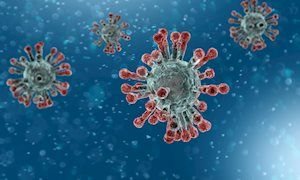16 July 2020
Registering pain when the patient is not in pain
During the study, which has now been published in the International Journal of Health Policy and Management, healthcare providers indicated which registrations they felt were unnecessary. Nurses and physicians find it annoying when, while standing at a patient's bedside, they only look at a screen on which things need to be registered. As a result, they look at the patient much less, which is not pleasant for both patient and care worker.
Another remark that came back a lot, is that it is necessary to measure what does not feel logical. For example, registering a pain score, while there is no pain. Or the recording of bedsores in someone who comes for day treatment, or the measurement of malnutrition in young, healthy people who are admitted for a simple treatment like an almond operation. Some caregivers indicated that this way they no longer learn to trust their feelings, but only the scores.
Caregivers need to register more than 90 records
In the more than 52 minutes that care providers spend on quality registrations, they keep an average of 91 quality indicators per department. This includes 1380 variables. As many as 24 parties request these registrations, ranging from accreditation agencies to government and health insurers. There is a 47% overlap between the requests, but the way in which they are entered and maintained is not uniform, which means that a great deal of time is lost. In total, 57% is registered mainly for accountability purposes, 18% for internal control and 25% with quality improvement as the main goal.
But one third of the registrations feel useful
Only 36% were perceived by care providers as useful for improving the quality of daily care. Results of the survey show that some registrations even result in less job satisfaction and motivation. Principal researcher Marieke Zegers of the Radboudumc: "It is high time care providers and policymakers sat down together to coordinate their information needs. The amount and inefficiencies frustrate care providers."
Research as part of the Experiment Meaningful Registration (ZIRE)
In the Radboudumc, the Intensive Care department participated in the research. Instead of 102 indicators, only sixteen indicators are registered here. "We have been given room by the Health Care Inspectorate (IGJ) to temporarily let go of the quality indicators and, together with doctors, nurses and ex-IC patients, to determine which registrations are really needed. If you limit yourself to this 'core set', you can maintain or even improve the quality of care. Because time that you no longer spend on registration can go towards actually improving the quality of care," says Marieke Zegers.
The research carried out by the three hospitals (Radboudumc in Nijmegen, UMCG in Groningen and Rijnstate in Arnhem) is part of ZIRE (Zinvolle Registratie), in which experiments are being conducted to reduce the number of registrations. The experiment is carried out under the auspices of the NFU consortium Quality of Care and Care Institute Netherlands. The report with results and recommendations will be published in the autumn.
Publicatie in International Journal of Health Policy and Management: Perceived Burden Due to Registrations for Quality Monitoring and Improvement in Hospitals: A Mixed Methods Study
Marieke Zegers, Gepke L. Veenstra, Gerard Gerritsen, Rutger Verhage, Hans J.G. van der Hoeven, Gera A. Welker.

Registering pain when the patient is not in pain
During the study, which has now been published in the International Journal of Health Policy and Management, healthcare providers indicated which registrations they felt were unnecessary. Nurses and physicians find it annoying when, while standing at a patient's bedside, they only look at a screen on which things need to be registered. As a result, they look at the patient much less, which is not pleasant for both patient and care worker.
Another remark that came back a lot, is that it is necessary to measure what does not feel logical. For example, registering a pain score, while there is no pain. Or the recording of bedsores in someone who comes for day treatment, or the measurement of malnutrition in young, healthy people who are admitted for a simple treatment like an almond operation. Some caregivers indicated that this way they no longer learn to trust their feelings, but only the scores.
Caregivers need to register more than 90 records
In the more than 52 minutes that care providers spend on quality registrations, they keep an average of 91 quality indicators per department. This includes 1380 variables. As many as 24 parties request these registrations, ranging from accreditation agencies to government and health insurers. There is a 47% overlap between the requests, but the way in which they are entered and maintained is not uniform, which means that a great deal of time is lost. In total, 57% is registered mainly for accountability purposes, 18% for internal control and 25% with quality improvement as the main goal.
But one third of the registrations feel useful
Only 36% were perceived by care providers as useful for improving the quality of daily care. Results of the survey show that some registrations even result in less job satisfaction and motivation. Principal researcher Marieke Zegers of the Radboudumc: "It is high time care providers and policymakers sat down together to coordinate their information needs. The amount and inefficiencies frustrate care providers."
Research as part of the Experiment Meaningful Registration (ZIRE)
In the Radboudumc, the Intensive Care department participated in the research. Instead of 102 indicators, only sixteen indicators are registered here. "We have been given room by the Health Care Inspectorate (IGJ) to temporarily let go of the quality indicators and, together with doctors, nurses and ex-IC patients, to determine which registrations are really needed. If you limit yourself to this 'core set', you can maintain or even improve the quality of care. Because time that you no longer spend on registration can go towards actually improving the quality of care," says Marieke Zegers.
The research carried out by the three hospitals (Radboudumc in Nijmegen, UMCG in Groningen and Rijnstate in Arnhem) is part of ZIRE (Zinvolle Registratie), in which experiments are being conducted to reduce the number of registrations. The experiment is carried out under the auspices of the NFU consortium Quality of Care and Care Institute Netherlands. The report with results and recommendations will be published in the autumn.
Marieke Zegers, Gepke L. Veenstra, Gerard Gerritsen, Rutger Verhage, Hans J.G. van der Hoeven, Gera A. Welker.
-
Want to know more about these subjects? Click on the buttons below for more news.
Related news items

More than five million euros for research to improve palliative care Jeroen Hasselaar will lead research project with Horizon grant
15 June 2022 Jeroen Hasselaar will lead a large international research project. With a 5.3 million euro grant from the EU's Horizon program, he and his team want to improve palliative care for cancer patients, together with partners from nine European countries. read more
Promising aftercare for vulnerable patients in ICU
30 March 2021 ICU researchers Mark van den Boogaard and Marieke Zegers will receive a ZonMw/ZIN grant of 1.6 million euros for their research into cost-effectiveness of multidisciplinary, structured and personalized post-ICU care. read more
New Physical, Mental, and Cognitive Problems 1-year Post-ICU
18 February 2021Half of the Intensive Care Unit (ICU) survivors suffer from new physical, mental and/or cognitive problems one year after ICU admission. This is evident from the large-scale MONITOR-IC study led by the Radboudumc.
read more
Nina Wubben won best abstract prize at the Dutch Intensive Care conference
26 February 2020 Nina developed a prediction model for change in quality of life one year after ICU-admission. read more

